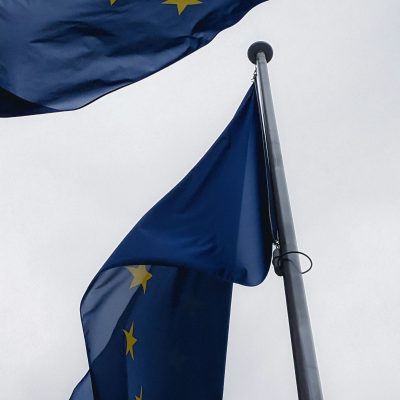
Les législatives françaises placent le gouvernement dans une situation tout à fait inhabituelle sous la Ve République mais très ordinaire ailleurs en Europe. Le gouvernement tchèque, qui prend la présidence européenne ce semestre, s’appuie sur une alliance de cinq partis. La majorité absolue est aujourd’hui l’exception plutôt que la règle dans la plupart des parlements nationaux, à la représentation le plus souvent morcelée. L’hémicycle européen aussi incarne cette fragmentation des courants politiques, en particulier depuis que chrétiens-démocrates et sociaux-démocrates y ont perdu en 2019 leur prééminence historique.
La présidence française du Conseil de l’UE, qui vient de s’achever, a montré que ni la diversité des Vingt-Sept, ni l’hétérogénéité des forces au Parlement européen – et ni la guerre en Ukraine- empêchaient de conclure des accords politiques sur des législations de grande portée. La culture du compromis imprègne le processus décisionnel européen depuis ses origines. La Commission européenne l’anticipe dans ses projets de directives et de règlements. Le projet européen lui-même est par définition un compromis, sauf à vouloir y projeter sa seule idéologie.
La France, rompue à façonner des compromis européens à Bruxelles, Strasbourg ou Luxembourg, va devoir s’y accoutumer chez elle. Cela oblige l’exécutif à sortir d’une verticalité inhérente au régime de la Ve. Mais cela implique aussi que les oppositions quittent la posture facile et immédiate de l’intransigeance dans le seul but de se préserver d’ici aux élections suivantes.
« Les intérêts composent toujours, les passions jamais », selon le moraliste Vauvenargues. Les passions politiques les plus viles risquent de se déchaîner dans les rangs d’une assemblée, qui redouterait sa prochaine dissolution, et déborder dans la rue. Mais une guerre qui s’enlise, un réseau électrique tendu, une croissance ralentie, une inflation qui dure et un potentiel désordre social devraient forcer à éviter la politique du pire. Les opinions publiques seront l’aiguillon qui amèneront ou non les partis à composer.
Le compromis doit dès lors retrouver toute sa noblesse. Il n’exprime pas que l’état d’équilibre momentané d’un rapport de forces mais implique une volonté commune d’avancer. Comme le définit le philosophe Olivier Abel, le compromis ne sert pas à résoudre un conflit politique mais à « le rendre soutenable ».
Cela requiert respect des règles du débat, estime mutuelle, que n’empêche pas l’adversité, et consensus sur des fondamentaux républicains, qui ne supprime pas la pluralité. Les médias ont une responsabilité première dans la structuration du débat. Les différents corps intermédiaires, si chers notamment à Jacques Delors, jouent aussi un rôle dans la diffusion d’une culture du compromis, qui oblige à hiérarchiser ses priorités. A supporter des différences sur des convictions secondes par rapport au thème central. A s’abstenir parfois de manière constructive. Les élus français peuvent sans doute tirer de leurs homologues européens de bonnes pratiques. Celles qui redonneront à la démocratie représentative toute sa vitalité.




